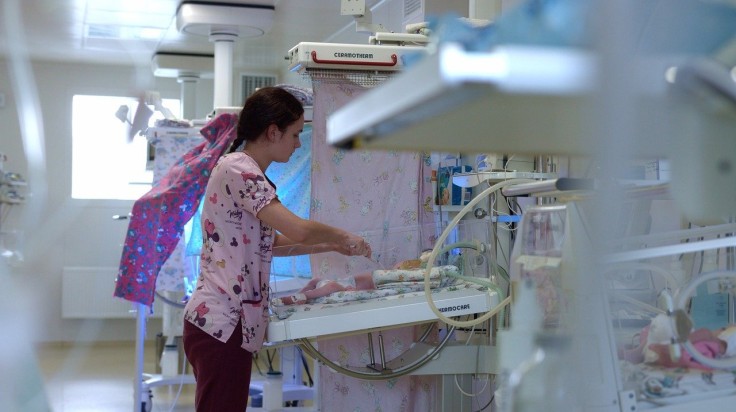
A Texas mom will face the next eight years without contact with her child after she was convicted of causing harm and injury to her son due to a case of suspected Munchausen syndrome by proxy.
Sarah Melgar, 22, was arrested in 2021 because she had lied to doctors about her baby's medical issues. She subjected her son, who was born in the fall of 2020, to various procedures that turned out to be unnecessary within a month of his birth.
Among these procedures included a series of spinal taps, which required needle insertion on her son's vertebrae to determine sepsis. The mom also apparently told family members that her baby had a hearing issue, heart defect, and Down syndrome, per Fort Worth Star-Telegram.
In March 2021, a caseworker from Child Protection Service suspected that the mother was faking her baby's illness when she brought him to the Cook Children's Medical Center and complained that the baby would vomit the food given to him. The hospital staff saw red flags when Melgar gave inconsistent and conflicting accounts of the baby's alleged illness compared to their own interaction with the patient. The staff didn't have problems with the baby's feeding but noticed the mother incorrectly giving the bottle to her son.
By April of that same year, her baby was placed under the care of his great-grandparents and was thriving better without any medical episodes. This led authorities to investigate the mother for suspected Munchausen syndrome by proxy.
Read Also: Vegan Florida Mom Convicted of First-Degree Murder for Feeding Toddler Just Fruits and Vegetables
What is suspected Munchausen Syndrome by proxy?
Someone who routinely claims fake medical symptoms for a child or adult they are looking after may suffer from mental health disorder called suspected Munchausen syndrome by proxy. The condition is classified under "factitious disorder imposed on another" (FDIA) in the Diagnostic and Statistical Manual of Mental Disorders (DSM-5).
According to Mayo Clinic, a person with suspected Munchausen syndrome by proxy may be aware of the risks they bring upon their ward but they cannot control their behavior and will not likely think they need medical help as well. There are several factors that could trigger this mental health disorder including trauma from childhood, personality disorder, stress, and depression.
Though FDIA is considered a rare disorder, most cases are not easily identified by medical workers unless they are trained to spot the condition. Unfortunately, the mortality rate for victims of FDIA is high thus the court sees this as a form of abuse.
Tarrant County Detective Michael Weber worked on Melgar's case and interviewed family members who realize she may be faking her baby's symptoms to draw attention. However, the mother isn't facing any criminal liabilities because it's difficult to prove the case as criminal persecution.
The judge granted the mom deferred adjudication, which means that her record with the police could be wiped out after she serves her community supervision.
Daughter's death sparks changes in Colorado
Meanwhile, in Colorado, the conviction against a mother with suspected Munchausen Syndrome by proxy has resulted in state lawmakers creating measures to improve the reporting of cases of potential child abuse in children in the wake of the death of Olivia Gant, 7, under the care of her mother, Kelly Turner.
Turner, who has been sentenced to 16 years in prison, faked her daughter's illness for nearly five years, resulting in the child's eventual demise. The child's grandparents also sued the Children's Hospital Colorado for failing to notice that something was wrong with Turner's claims.
According to The Denver Post, Gov. Jared Polis signed the law that will establish a 34-member task force to ensure that a proper system is in place to prevent more deaths because of carers who claim fake illnesses. The task force is expected to produce reports on their recommendations by January 2024 and January 2025.
The child's extended family welcomes the initiative and hopes that critical policies, education, training, and legal stipulations will be in place after the task force's work.
Related Article: Colorado Mom Kelly Turner, Who Faked Daughter's Illness, Admits Guilt Over Her Death